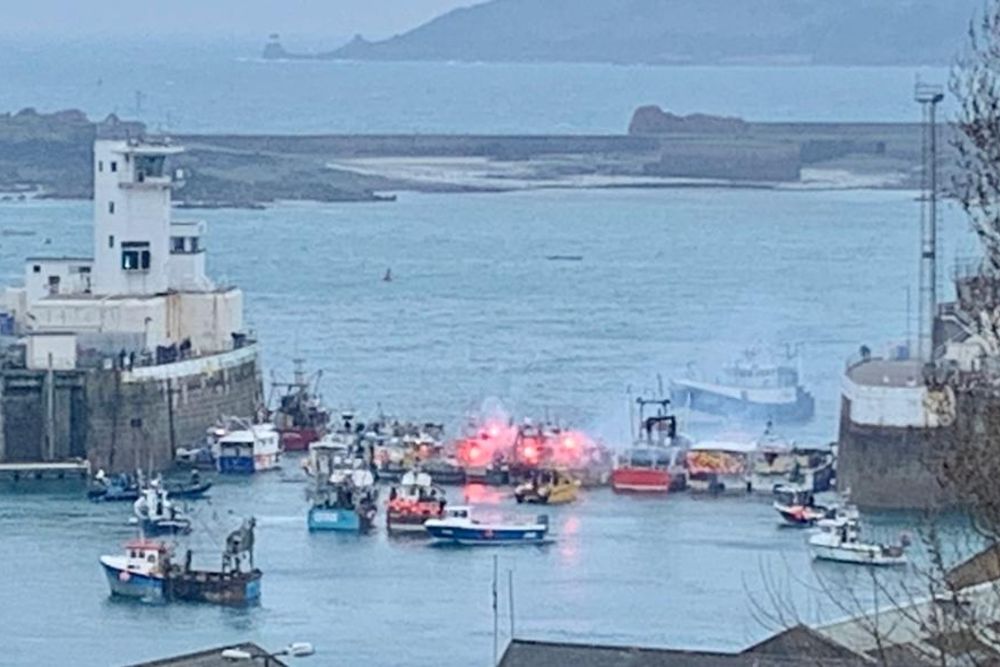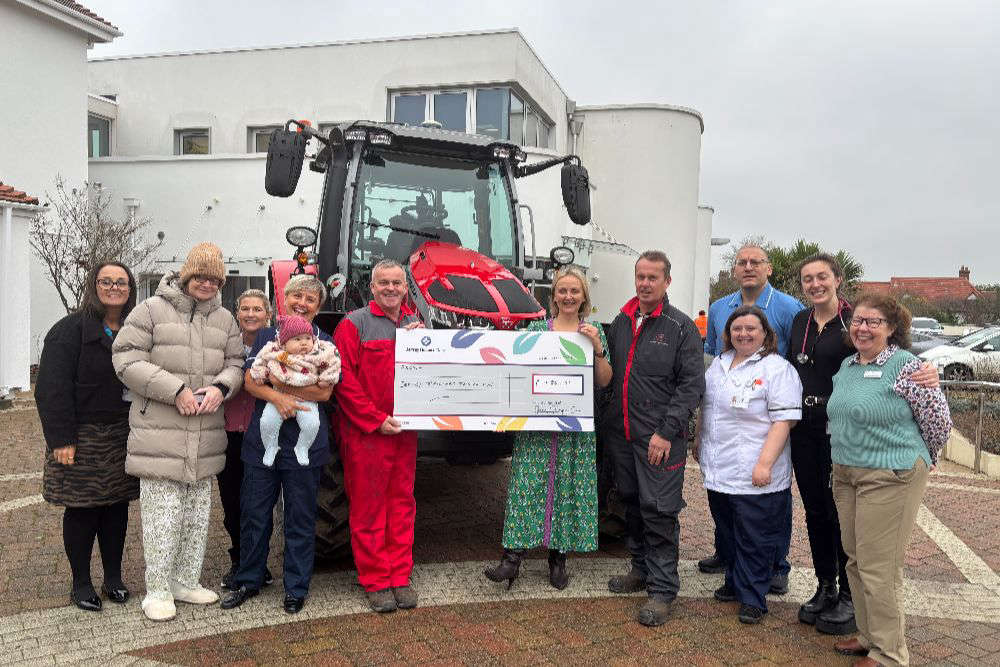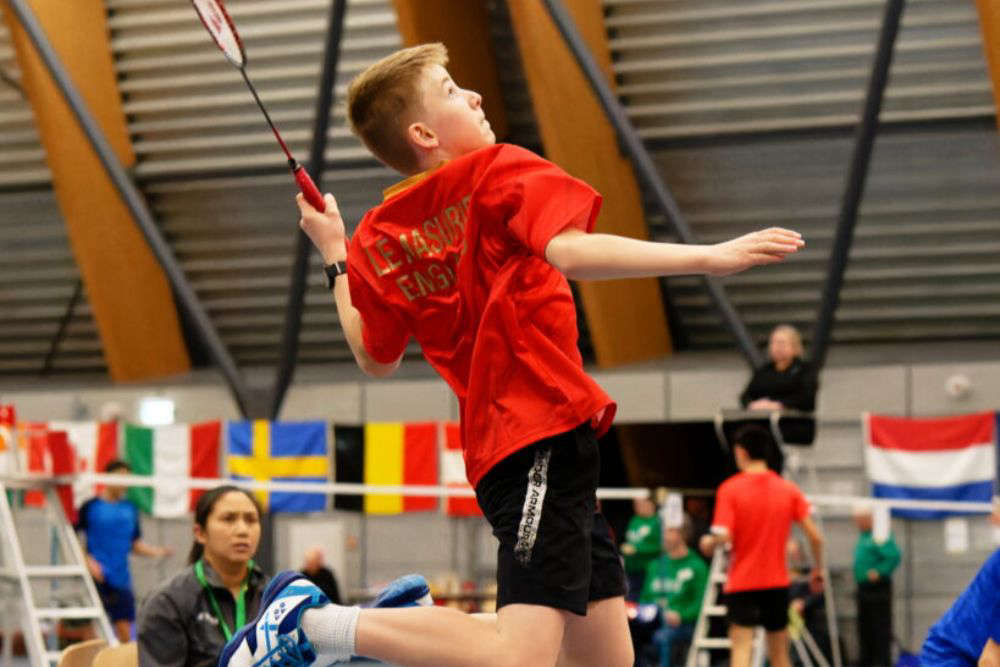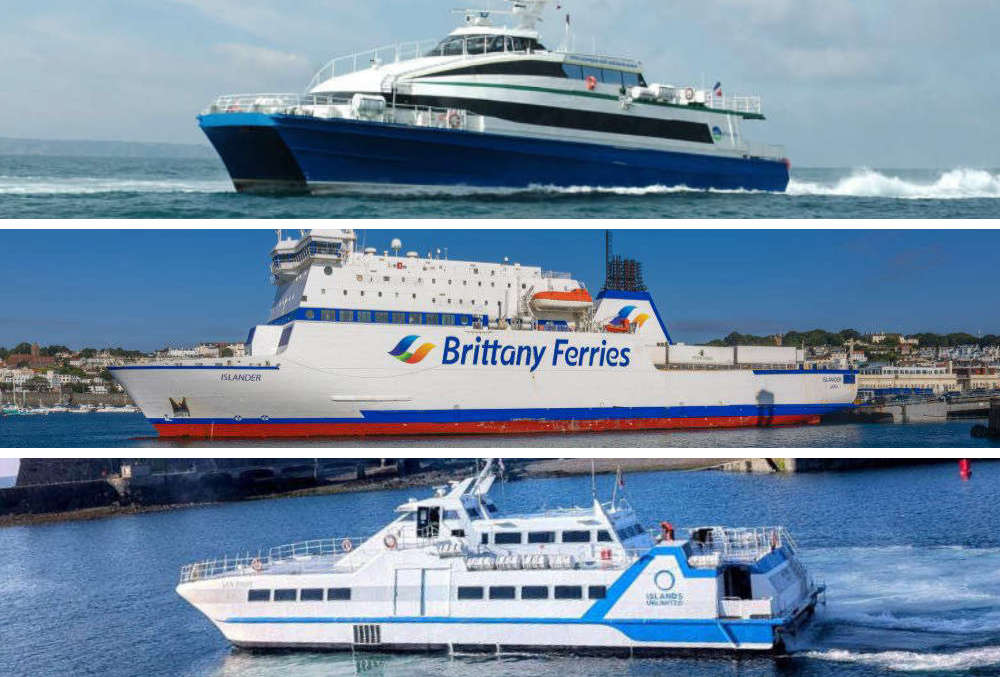
The Environment and External Relations Ministers have called for hostility to be kept to a minimum, as anger grows among whelk and scallop fishermen in Jersey.
Protests were held on Wednesday over French boats taking lots of the shellfish out of Jersey's waters every week, which the Fishermen's Association President has called 'not legal, not fair, and not correct'.
Don Thompson told Channel 103 that one Jersey fisherman had his catch impounded by the French on Tuesday night for what he called 'some obscure breach that they made up at the very last minute'.
Jersey fishermen say they've been unable to land their catches in France because Jersey is now classified as a third country for exports into the European Union.
In a lengthy statement, Deputy John Young and Senator Ian Gorst say, while they fully understand and empathise with their situation, it's not a challenge unique to Jersey.
"From 1st January 2021, Jersey has been classified as a third country for exports into the EU, and products must generally come from either Class A Waters or be depurated prior to export. This is the case for oysters and mussels being exported for consumption. Government officials have recently received confirmation that whelks can be exported through St Malo with the relevant health certification and are not subject to purification. This export process is very different from that which our fishermen previously experienced but it is a function of Jersey now being a third country for trade in goods with the EU. This particular situation is not directly related to the terms of the Trade and Cooperation Agreement (TCA) and these new processes would be in place whether or not Jersey had agreed to participate in the TCA.
"It should also be clarified that the EU has not downgraded Jersey Waters as the programme to establish that classification has not yet been completed. No classification for Jersey waters was required prior to the UK’s exit from the EU. Aquaculture concessions have, however, been classified for many years and an inappropriate read-across may have occurred.
"The JFA have highlighted that French vessels continue to fish for these species and land into French ports. Ministers appreciate that the current rules are frustrating given that Jersey and French vessels fish the same fishing grounds with the same metiers and yet are subject to different landing regimes. However, this is a function of Jersey being a third country and concerns the import of products into the EU, not the access to fishing grounds, which has always been a separate consideration for all parties throughout the Brexit negotiations.
"The amnesty arrangements referenced by the JFA, which are in place from 1st January to 30th April 2021, have continued for an additional 4 months the arrangements for access to Jersey waters which have been in place for 2 decades under the Bay of Granville Agreement. The amnesty was sanctioned by the Government of Jersey, and not the External Relations Minister as is incorrectly stated.
"Jersey’s exclusion from the TCA would result in the continued application of the Bay of Granville Agreement. From May, this would mean more vessels having ongoing access to Jersey waters, continued joint licensing arrangements for vessels fishing our waters and the ongoing joint management of Jersey’s waters. The current challenges being faced in landing bivalve molluscs (and particularly Oysters and mussels as referenced above) would remain, plus there would be tariffs for our products. Islanders should also be aware that any decision to close Jersey’s waters to French vessels would have to apply equally to Jersey vessels, in accordance with the non-discrimination provisions governing access to waters under the TCA.
"Ministers will continue to work with our fishermen and colleagues in the UK, France and the EU to explore all options to ensure an equitable and fair system for the export of these species to the EU, together with any classifications or shore based infrastructure to facilitate their export. In particular, the Government of Jersey is pushing for a Border Inspection Post to be established at Granville to facilitate landings there. In addition, Ministers have signed off a package of support for those fishermen affected. Ministers will also work together with industry to ensure the right infrastructure is in place to allow for processing and adding value to our marine resources together with a full assessment of future market opportunities. A meeting between Ministers and a number of Jersey fishermen is planned for next week.
"These challenging times require calm voices and a reasoned approach to the issues we are all facing. The Government of Jersey supports our fishermen, and will do everything possible to protect and sustain the industry and the livelihoods that depend on it. Equally, we understand that a number of livelihoods in Normandy and Brittany are part of this story and have been for generations. Hostility can be perceived on all sides, and every effort must be made to keep this to a minimum."


 Jersey's first Christmas Tractor Run raises more than £10k
Jersey's first Christmas Tractor Run raises more than £10k
 Finish line looms for school's Advent Challenge
Finish line looms for school's Advent Challenge
 £1 million into Jersey sport in 2026
£1 million into Jersey sport in 2026
 Channel Islands could technically have a White Christmas
Channel Islands could technically have a White Christmas
 Cocaine importer jailed for six years 9 months
Cocaine importer jailed for six years 9 months
 Details announced of free childcare for two and three year olds
Details announced of free childcare for two and three year olds
 18-year-olds to have access to Jersey social housing
18-year-olds to have access to Jersey social housing
 CI ferry operators to work together to improve inter-islands travel
CI ferry operators to work together to improve inter-islands travel





Comments
Add a comment